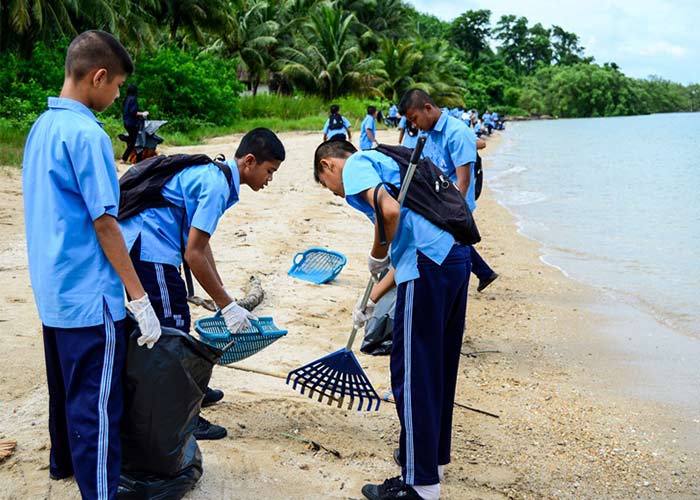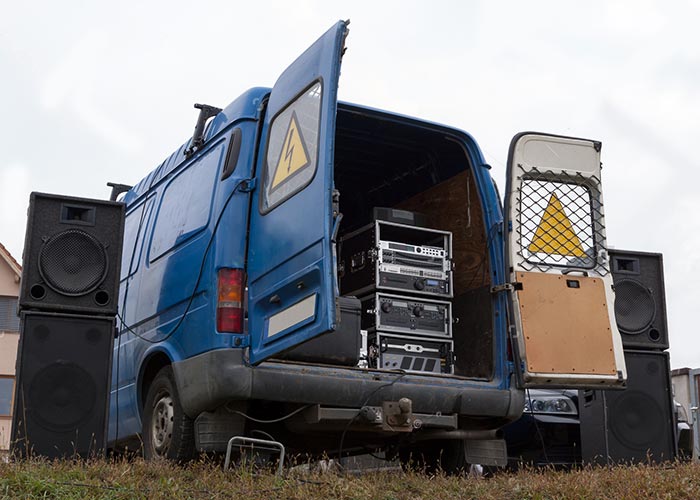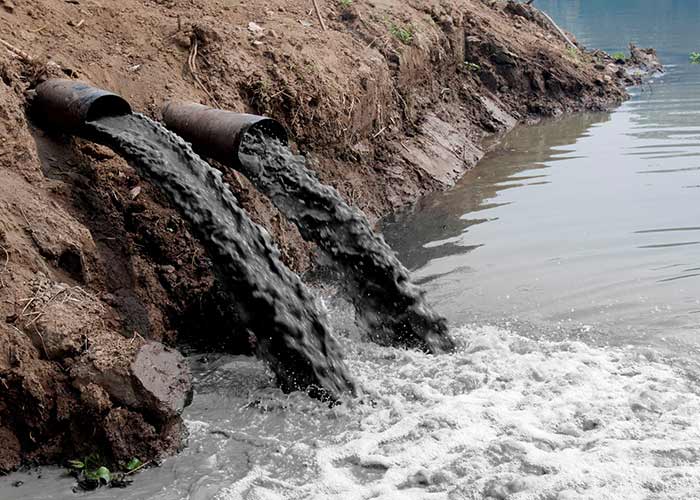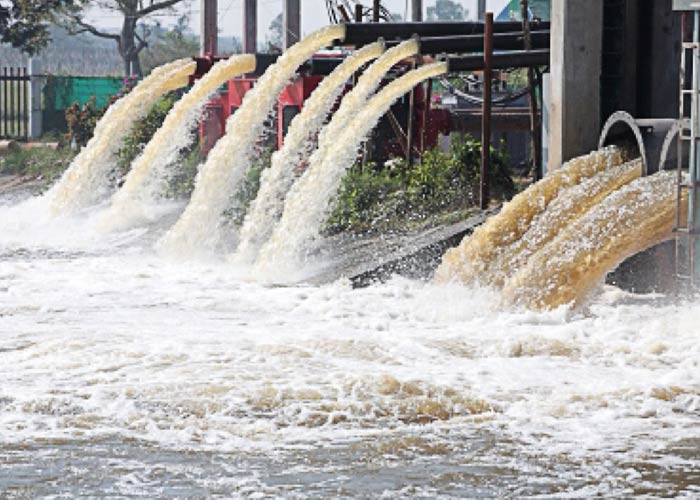Over the years, global warming has led to geologically significant conditions and processes with damaging implications. The space for wildlife is shrinking rapidly, forest cover is getting eroded and species are facing extinction. Carbon dioxide, methane and other greenhouse levels in the atmosphere are rising threateningly. The ocean is filled with plastic, suffocating the habitat of marine creatures with harmful chemicals, which have, in turn, made seafood unhealthy for consumption. Worse, sea water contamination results in the deaths of over 1 million seabirds and 100,000 sea mammals every year.
Students have a crucial role to play to help save the environment. While giving priority to classes, examinations, and busy schedules, they should also take steps to become custodians of environment. It is all the more important as responsible habits established in early phase of life tend to stick with us for a long time. They should aim at saving the Earth’s natural resources. Then only it can meet our demands to help us live with enough light, water, heat and food. Significantly, going green only takes a few simple steps:
Steps for students to save the environment
- Re-use or recycle
The growth in human population has led to increase in the amount of waste or garbage churned out every day. To reduce this burden, you need to look for options to re-use and recycle goods. Recycling is one of the easiest ways to go green. Items such as newspaper, cans, glass and plastic bottles can be separated from trash. This will help to keep as much out of your garbage cans as possible. Old batteries and items such as televisions, computers, etc can also be recycled and kept out of finding their way into the ocean. It takes very small production energy to recycle metal and glass items unlike consumption of finite natural resources. Recycling or reselling your textbooks is also a good idea to save trees. Don’t let textbooks rot on the shelf or take up space in a landfill.
As a college student, you need to recharge your batteries of portable electronic devices such as smart phones, digital cameras, and MP3 players. Unfortunately, batteries contain heavy metals like mercury and cadmium, which add to contamination at dump sites. To save the environment, you will do well to use rechargeable batteries, or recycle the used alkaline batteries. When required, dispose of batteries responsibly.
- Reduce meat consumption
If you are non-vegetarian, you should try to cut down on meat consumption. By cutting down your meat intake, even just a little, you can save energy that is vital to the balance of environment. You will be surprised to know that it takes 2,500 gallons of water, 12 pounds of grain, 35 pounds of topsoil and the energy equivalent to one gallon of gasoline to produce one pound of beef. Nearly one-fifth of the world’s greenhouse gas emissions can be attributed to the meat industry. Moreover, animal agriculture greatly contributes to greenhouse gas emission with a single dairy cow producing 75kg of methane annually. Raising animals in farms needs great quantity of energy, starting from cultivation of crops as food for livestock to huge volumes of water and transportation of meat across the country. You can minimize this harm to environment, animals and ourselves by adopting vegetarian alternatives.
- Adopt re-usable bags
When you are shopping grocery items you can choose paper/cloth over plastic to carry you stuff. All the more preferable if that is a reusable grocery bag. Impress upon your parents to bring cloth bags from home, rather than using the grocery store’s paper or plastic ones. Moreover, it is not healthy to carry fruits and vegetables in a plastic bag. Also, buy less stuff with unnecessary non-biodegradable packaging. At some grocery stores, you will even get a discount when you use your own reusable shopping bag.
- Avoid bottled water
Refrain from buying bottled water as you need to be aware that plastic from empty water bottles can sit in landfills for 500 or more years before they even begin to decompose. Plastic wraps, containers etc pollute our oceans and land and cause harm to humans, animals and plants all around the world. It is feared that the oceans will contain more plastics than fish by weight by 2050. So, make sure to keep plastic out of the oceans and off of the land by recycling all the plastic in your home such as plastic bottles and bags.
- Buy reusable water bottles
Get water filter and reusable water bottles for yourself and your family. You can take the reusable bottle to the gym, to class, or and use them over and over again to help reduce plastic pollution. Remember that bottled water may be convenient to carry and good to taste, but these bottles have highly adverse impact on the environment. Don’t go for packs of expensive bottled water. Instead, use a nice reusable water bottle and fill it whenever required, to stay hydrated and healthy. High-quality re-useable water bottle can cut down on the immense amount of plastic in our landfills.
Your disposal habits have a huge impact on everything. After you have had your lunch, clean the plastic water bottle and re-use it the next day.
- Shun chemical-laden detergents
Do not use detergents, which have chemicals as they have adverse consequences on aquatic life. Look for the sustainability label and buy eco-friendly, branded and popular detergents.
- Save electricity
Another good idea is to always turn the lights off whenever you leave your room. Use of less electricity leads to help save the environment. Make it a point to turn the light off when you don’t need it. Also, remember to unplug the toaster or any other small machine after you use it. The fact is that leaving something plugged, even if you are not using it, consumes substantial energy from the Earth. For instance, when your cell phone charger is plugged into the wall, it uses electricity even when it’s not connected to your phone. It also applies to other appliances around your apartment. So, make it point to turn off all appliances before you go to bed.
- Use energy-efficient devices
You can save energy even when the lights are on by changing your traditional light bulbs, which use more energy than necessary. Switch to energy-saving bulbs, which will use 75% less energy.
- Draw upon nature
Don’t be over-dependent on air-conditioners that add up to your electricity bills and consume so much energy. It is not a bad idea to open a window and let the breeze cool you down.
- Avoid food wastage
You need to be careful about wasting food at a restaurant as leftover food ends up in a landfill, aggravating pollution. Order food as much as you need, try a small or half-sized portion or share meal with your friends, etc. It will lead to reduction in monetary as well as environmental costs.
- Reduce vehicular emissions
You are well aware that motor vehicles are sources of fossil fuel emissions. You should impress upon your family to minimise driving as there other options too: walking, cycling, carpooling or taking the bus to where one needs to go. You should also reduce your carbon footprint by walking or biking to your college campus instead of driving. Cycling your way to school or work can greatly reduce pollution as well as commuting woes. By giving up to ride in luxury, you show that you care for the environment, besides enjoining health benefits of cycling as the exercise is really great for your body. If your college is located at a great distance from your home, you can explore public transportation, which is an affordable, environmentally friendly option.
- Plant trees
Your efforts should be to slow down global warming as the increase in Earth’s temperature poses a grave environmental crisis. Make it a point to participate in plantation drives as much as possible as trees and plants help to absorb the carbon dioxide in the Earth’s atmosphere.
- Go paperless
Your family can opt for e-bills instead of receiving their physical copies. The same applies to bank statements, ATM receipts, store receipts and everything else that can be shared via e-mail. Let paper items become a thing of the past. On your part, before buying expensive printed textbooks, check whether the required reading for your class is available online. You can also download e-textbooks onto your tablet to save monetary as well as environmental costs. Such small moves will help save trees that are cut to produce paper.
- Reduce energy consumption
You should convince your family to not resort to heating your home in the winter and cooling it off in the summer too frequently as it takes a lot of energy, which adds to further exploitation of natural resources on planet Earth. Instead of consuming more electricity to heat the home, better put on a sweater or use a blanket to keep warm! Also see if you can use cold water instead of hot when washing your clothes. This way, you can save six and a half pounds of carbon emissions per load.
- Save water
Water is precious, so save it for the sake of environment. Remember to turn off the water while shaving or brushing your teeth, shorten your amount of shower time, turn off the running water while you lather your hands with soap, turn it back on to rinse your hands, and tighten any taps that are dripping water. By way of an example, cutting off your shower time by just two minutes, can prevent as much as 1,000 pounds of carbon dioxide from being emitted into the atmosphere. Such small things can make a big difference and help you save gallons of water each month.
- Turn waste into manure
You can take your parents’ help to start a compost system in your lawn for all fruits and vegetable peelings, scraps and leftovers. This compost, rich in nutrients, can be a natural alternative to fertilize your garden. Composting biodegradable materials shows your commitment to the environment, soil, and plants.
Help minimize garbage in your school and neighbourhood. Make sure you don’t leave your garbage lying around but put it in the garbage bin. This helps keep our Earth clean.
Conclusion
You need to imbibe respect for Mother Nature as it gives us everything we need to lead a happy, healthy existence. Alas, we have forgotten to have gratitude for what Nature has given us. So, instead of spending too much time in watching TV or playing indoors, spend more and more of your time in the lap of Nature. There are many great things that you can do outside like playing a sport, taking your dog for a walk, going to the beach or planning an outdoor game with the neighborhood kids. You’ll feel great playing out in the fresh air without causing any damage to the environment.







